
Catalysing Challenge-led Research to Support the SDGs: A Practical Framework from Monash University
A challenge facing many universities and researchers is how to catalyse large-scale, multi-partner challenge-led, interdisciplinary research to address the SDGs. In response to this challenge, Monash University has released a practical framework based on 15 years of experience which provides new guidance and strategies, drawing from an 18 month study of challenge-led, large scale research. The Framework seeks to strengthen systems, cultures and capabilities at a range of levels.

iBiMED GreenLab: an example of good sustainability practices at the University of Aveiro
Biomedical and biological research laboratories produce substantial amounts of plastic waste, much of it disposable. At the Institute of Biomedicine (iBiMED) at the University of Aveiro, scientists are increasingly aware of the disproportionate environmental footprint of their research. Through ongoing awareness-raising, even more colleagues are becoming aware of the importance of integrating sustainability practices into biomedical research. Environmental sustainability and the Sustainable Development Goals (SDGs) are an area of active effort at the University of Aveiro.

AI Resources at the University of Bergen
The University of Bergen (UiB) has long been a leader in the field of AI education, as the first university in Norway to offer not only bachelor programs in AI and Data Science, but also a master program in machine learning. UiB is a UNAI member and the focal point for UNAI SDG 14: Life below water.
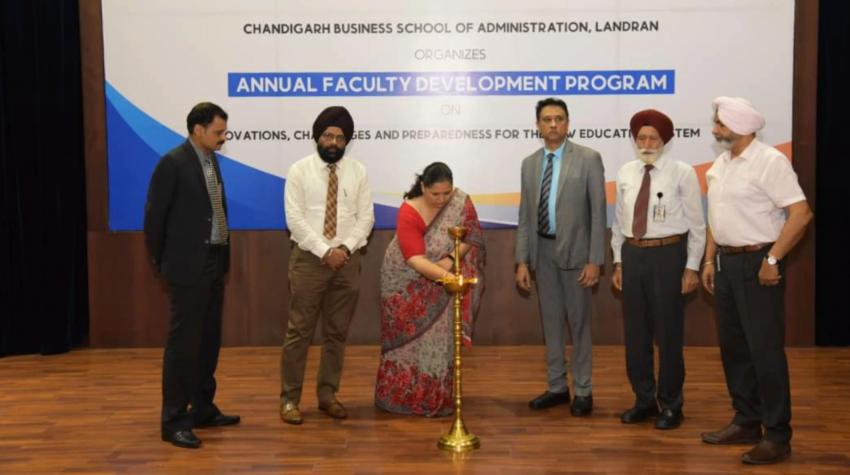
Chandigarh Business School of Administration Champions Sustainable Entrepreneurship
The Chandigarh Business School of Administration (CBSA) is emerging as a frontrunner in nurturing future business leaders equipped with a focus on sustainable growth and social responsibility. Through a series of well-curated events and programs, CBSA is fostering an environment that encourages innovation, entrepreneurship, and education with a keen eye on the United Nations Sustainable Development Goals (SDGs).

Kenya Prisons Andragogy and Pedagogy Project
Through this innovative project prisoners are being equipped with teaching skills to enable them to teach better and produce better grades in Kenyan maximum security prisons. The "Kenya Prisons Andragogy and Pedagogy Project" is an initiative by Mount Kenya University (MKU), Kenya National Commission for UNESCO (KNATCOM-UNESCO) and the Kenya Prison Service (KPS) focusing on the impartment of andragogy and pedagogy skills among the inmate teachers to improve learning conditions in the prison. In this way, the initiative is transforming the system of education in Kenyan prisons.

Work-Life Balance at UAveiro!
The impact of Work-Life Balance is measured by the level of satisfaction and personal and professional well-being of workers. At University of Aveiro (UAveiro), we want workers to feel supported and valued, and we want the levels of commitment to the institution to increase. By creating an organisational culture that values and promotes the balance between work, family, and personal life, UAveiro is building a work environment that is more inclusive, healthier, and more balanced for all members of its community.
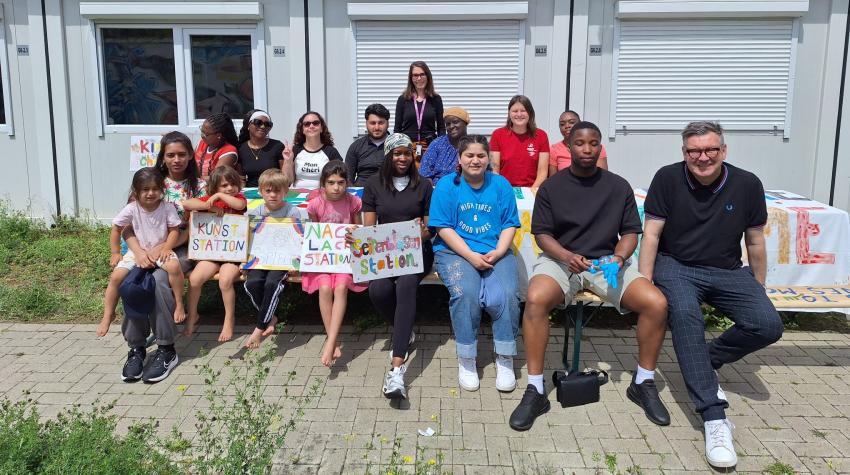
Students from De Montfort University mark World Refugee Day
Students from De Montfort University (DMU) marked World Refugee Day (20 June) by volunteering at a home supporting people who have experienced forced migration. The group were part of a delegation learning the principles of United Nations Sustainable Development Goal 16 during an intense week of activities in Berlin, Germany. DMU is the United Nations Academic Impact (UNAI) Hub for Sustainable Development Goal 16, Peace, Justice and Strong Institutions, and runs an annual trip to Berlin to teach the importance of working to the targets and indicators of the goal.

Manchester Metropolitan University launches new Sustainability Hub
Sustainability is at the core of the work of Manchester Met and part of their strategy is to offer a wide range of opportunities for staff and students to get involved with and make meaningful change. Their new Sustainability Hub was recently launched to facilitate collaboration, enhance practice, drive inter-disciplinary research and innovation. Further information is available about all of Manchester Met's SDG-related work.
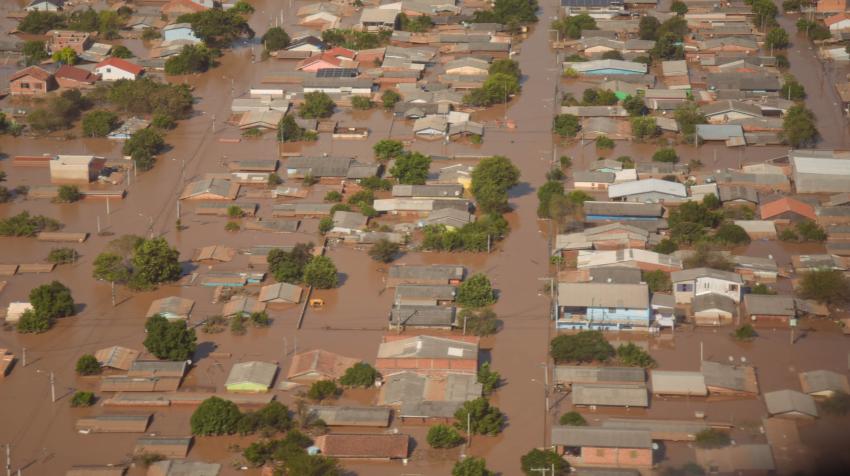
Feevale University Opens Arms to Families Displaced by Rio Grande do Sul Floods
Heavy rains and floods wreaked havoc across Rio Grande do Sul, impacting 450 cities and leaving over 500,000 homeless, with 124 people tragically missing and 148 confirmed deaths. In response to this devastating situation, UNAI member Feevale University has become a haven for displaced families and their animals, actively working to rebuild the community.
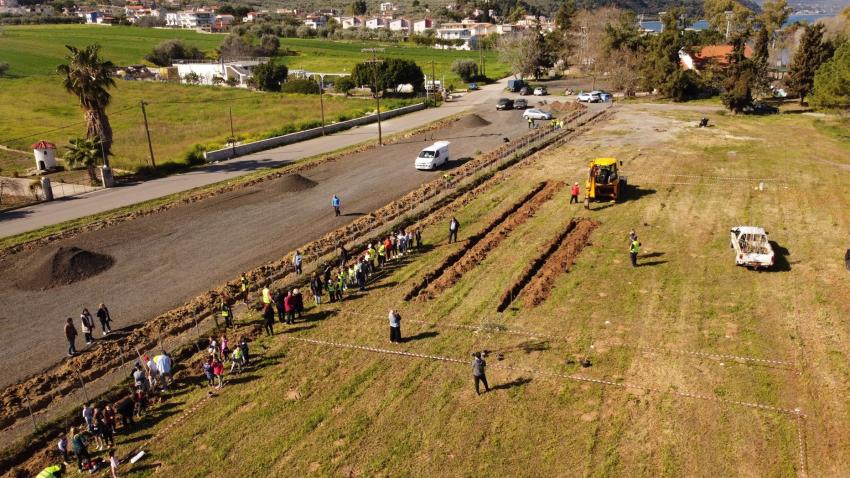
How UNAI SDG Hub 7 is setting a tree planting initiative against climate change
Since 2020, the National and Kapodistrian University of Athens, Energy Policy and Development Centre (KEPA) has led a tree planting initiative to celebrate the anniversary of the United Nations. In its first phase includes the planting of 4,984 trees that correspond to more than 105 tons of sequestrated CO2 per year, showcasing that trees are the silent allies for facing climate change. KEPA continues to serve as UNAI SDG Hub 7, to participate in the efforts to ensure access to clean and affordable energy for all.

University in Ireland Partners with IOM: Research on Migration, Environment and Climate Change
The International Organization for Migration - IOM has engaged in a research partnership with the Ryan Institute at the University of Galway, a member institution of the United Nations Academic Impact (UNAI) in Ireland, to assess the impact of climate change on human migration such country. It is the first Migration, Environment and Climate Change Country Profile in the European continent and it adds the Irish context to IOM’s growing number of national assessments from around the globe.
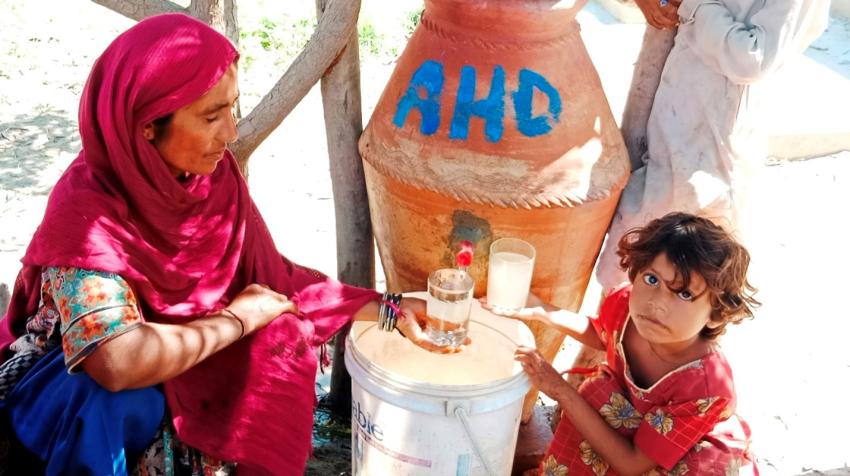
University in Pakistan Develops an Eco-Entrepreneurship Program
The heavy monsoon rains in the Sind province in Pakistan in 2022 became a deadly torrent, unleashing the worst floods in history. With 4.9 million hectares of crops destroyed, 1 million animals lost, 1.5 million houses damaged, 1,500 lives claimed, and 33 million people affected, this climate catastrophe exposed the vulnerability of developing countries like Pakistan to the wrath of a changing planet. While Pakistan contributes a fraction to global greenhouse gas emissions, it is the fifth most climate-vulnerable country in the world, bearing the brunt of a crisis it did not create.
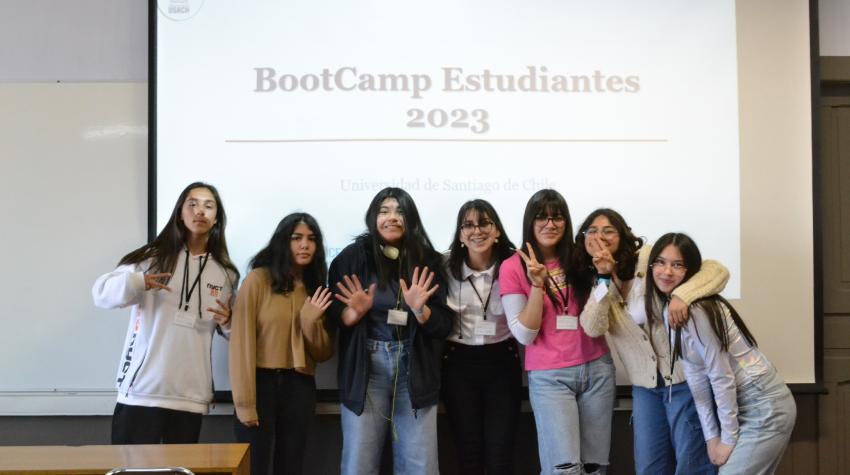
Training Teachers on STEM Education: The Initiative of a Chilean University
A team of the University of Santiago de Chile, a member institution of the United Nations Academic Impact (UNAI) in Chile, under the current direction of professors Carolina Bonacic and Héctor Muñoz, is implementing a capacity-building initiative for teachers nationwide in several lines of knowledge, providing them with new technological tools and strengthening the participation of women in STEM areas (science, technology, engineering, and mathematics) from school teaching.
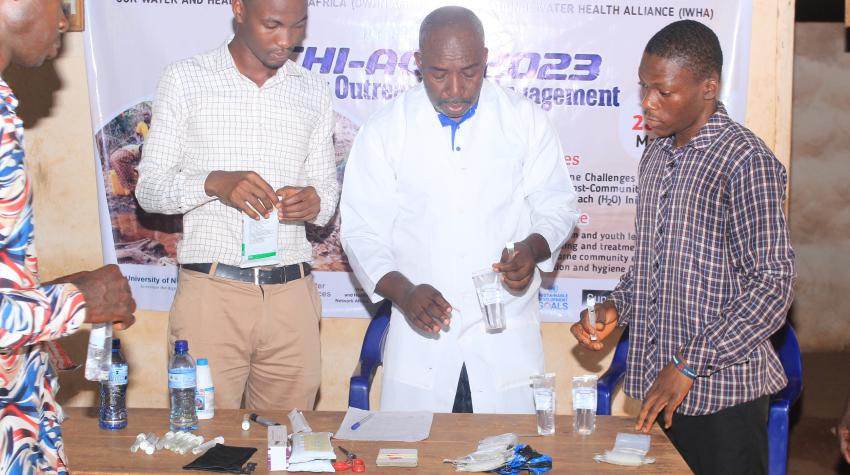
Ensuring Safe Drinking Water: University in Nigeria Engages with the Community
Globally, water is considered both a crucial resource and a major challenge. Its quality and availability constitute significant determinants of sustainable health, economic growth and social development. According to the United Nations World Water Development Report published in 2023 “water use has been increasing globally by roughly 1% per year over the last 40 years and is expected to grow at a similar rate” due to “population growth, socio-economic development and changing consumption patterns.” The same report warns though, that “water scarcity is becoming endemic as a result of the local impact of physical water stress, coupled with the acceleration and spreading of freshwater pollution.”
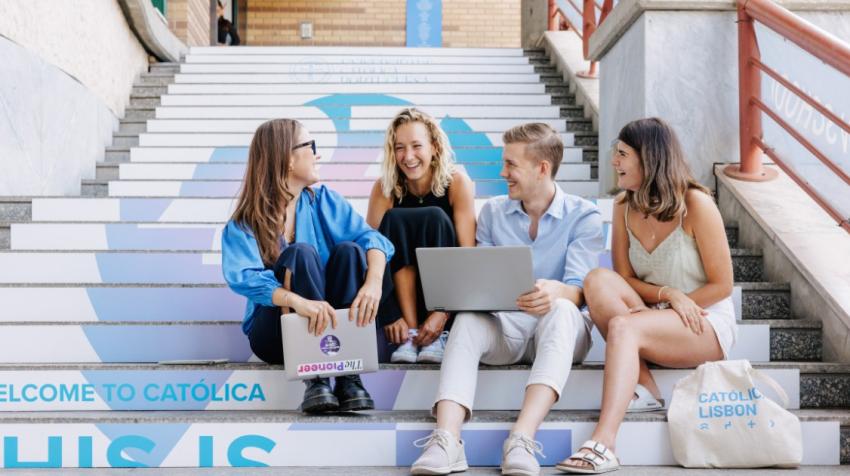
Creating a Shared Consciousness on the SDGs: A Portuguese University's Initiative
In light of the ongoing global challenges, the role of higher education institutions is vital. Universities, said the United Nations Deputy Secretary-General, Amina J. Mohammed, in her message to the Association of Pacific Rim Universities Annual Presidents’ Meeting in June 2023, can make the Sustainable Development Goals or SDGs a reality using their “knowledge, resources, and influence.” “This includes integrating the SDGs into university curricula and offering interdisciplinary courses,” she added.
